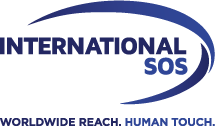Outside the Classroom
Published: September 2014
PROTECTING TOMORROW'S FUTURE: MEDICAL, LOGISTICS AND SECURITY ASSISTANCE FOR STUDENTS GOING BEYOND THE CLASSROOM
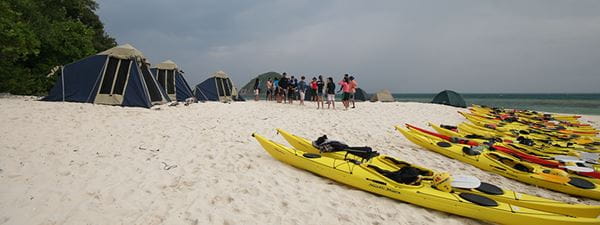
Taking school children and youngsters to unfamiliar environments presents a unique set of challenges and responsibilities. Which is why more and more schools are turning to International SOS for medical, logistics and security support. International SOS helps ensure scholastic clients achieve their educational goals and visions while staying safe. Here, two of the company’s key clients discuss the benefits of service agreements and explain how International SOS is helping them carry out their Duty of Care.
The United World College of South East Asia (UWCSEA) is part of the UWC movement, founded by the great German thinker and educationalist, Kurt Hahn. The school’s guiding philosophy is to help students achieve “the independence and global perspective that will allow them to effectively lead by influence”, and to prepare them “not just for university, but for life”. To this end, ‘outdoor education’ is one of the five core elements of the UWCSEA learning programme. From its two campus locations in Singapore, the school coordinates 490 overseas trips annually, totalling 775,000 student hours of expeditions and travel each academic year.
“It’s a fairly unique institution,” says Patrick Read, Head of Outdoor Education and Director of Expeditions at UWCSEA. “At every grade level all our students (without exception) take part in the Outdoor Education programme. This starts at Grade One with a ‘sleep over’ at school and culminates with the students planning and running their own expedition in Grade Eleven. The students are very fortunate and travel to programmes all over SE Asia. In Grade Nine they have the opportunity to choose from 26 different locations including destinations in Europe, America, Australia and Asia – and we have an extensive carbon offset programme to compensate for such large amounts of travel. They go trekking in rain forests and mountains, camping in the wild, canoeing or rafting on rivers. We believe these trips really open our students’ eyes and broaden their horizons, equipping them with skills and experiences that will stay with them for life.”
The flip side, of course, is that overseas travel with young people – particularly in the developing world - requires rigorous safety checks and organisational vigilance, as Read explains: “In these locations, out in the field with a large party of schoolchildren, you never quite know what’s behind you or what’s coming. To run such an extensive programme of Outdoor Education we have a Duty of Care to our students and community, and robust emergency procedures are a central part of this. I’m from the UK originally, where we can call ‘999’ if we need assistance but out here we call International SOS.”
LONGSTANDING RELATIONSHIP
UWCSEA has been using International SOS’ services for over ten years. The service agreements range from minimum-level travel insurance to top-flight, multifaceted contracts on a par with those taken out by multinational oil and gas companies or Non-Governmental Organisations (NGOs).
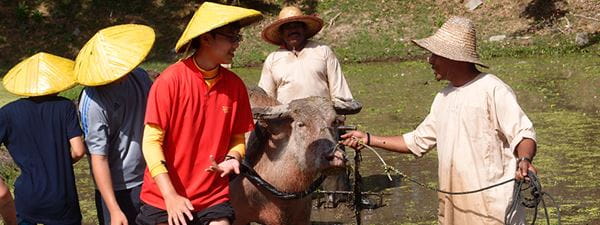
“When the young people come through the college gates, their parents expect the best educational experience for them,” says Read. “It’s the same when they exit the college gates with us on a trip; their parents expect the best levels of safety and instruction, and that’s what they get.”
The expert security and medical support provided by International SOS to UWCSEA is both proactive and reactive. In the first instance, Read and his team provide information about all upcoming excursions and journeys. They also supply the International SOS doctors with the necessary medical and security information relating to all students and staff for the duration of each trip.
International SOS then checks the school’s calendar online and sends relevant updates and text alerts, providing situational analysis for key areas and advising if circumstances look uncertain or in any way dangerous.
“They watch over us,” explains Read. “If anything is happening in one of the areas we’re due to visit, if there are fears about infection or bad weather or civil unrest, they will advise us how best to approach the situation, or whether we should reconsider our options. It’s incredibly reassuring; at the same time, we know they’re not superheroes, it’s not about International SOS performing miracles – it’s about a two-way flow of information that enables us to be prepared and pre-empt all scenarios.”
IN THE FIELD
Once out in the field, the UWCSEA team of wilderness first-aiders and instructors have 24/7 telephone access to International SOS. If a child falls ill, injures themselves or develops an allergy of some kind, the team can call one of our medical experts for emergency advice and guidance. Within seconds of receiving a call, doctors can view individual student medical records via a highly advanced IT system. This enables both the doctor and the instructor to look at the same records simultaneously and has proved to be extremely valuable in the past.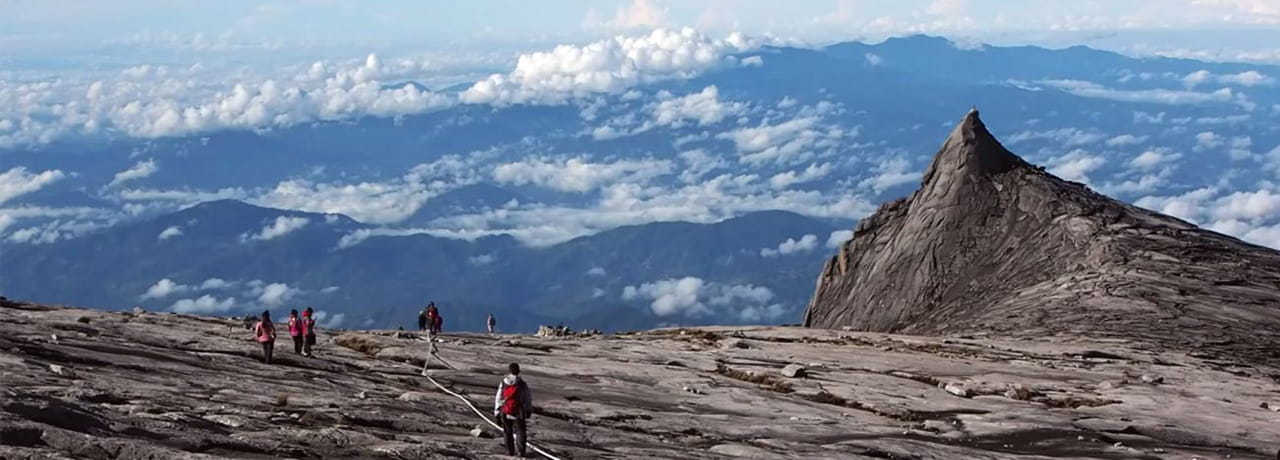
“All our instructors are highly skilled and experienced,” says Read. “But a sick child at night in the middle of nowhere is a frightening proposition for anyone. Having the International SOS team at the end of a phone really helps to put the guys on the ground at ease. You can see them visibly de-stress as they speak to the doctors.”
In extreme cases, UWCSEA can also call on International SOS to coordinate emergency airlifts and evacuations. Read recalls one memorable incident: “We once had a girl on a trip in Nepal with suspected appendicitis. International SOS airlifted her to Kathmandu where local doctors wanted to operate. International SOS checked her medical records and they were sceptical; they triaged a call with her parents and the UWCSEA Duty Manager, and armed with multiple strands of information advised that we fly her back to Singapore. We did just that; the doctors there confirmed it wasn’t appendicitis but another, non-critical medical condition. If it hadn’t been for International SOS, that girl would probably have been operated on in Nepal unnecessarily. As it was, she was back in school on the Monday.”
MANAGING RISKS THROUGH INFORMATION AND KNOWLEDGE
The English Schools Foundation (ESF) in Hong Kong is a not-for-profit organisation comprising 21 schools ranging from primary to secondary to special needs. Set up by the Hong Kong Government in 1967, ESF caters for 18,000 students from a wide variety of nationalities and cultural backgrounds, studying within the International Baccalaureate programmes and International GCSE curricula.
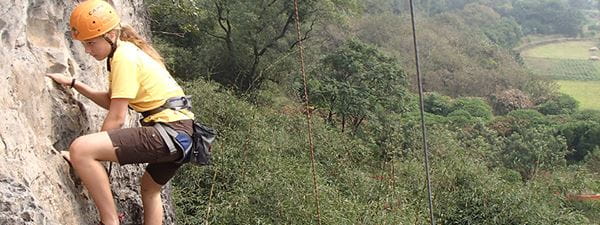
Like UWCSEA, ESF Hong Kong offers a range of overseas expeditions and activities in Hong Kong, China and mainly developing countries worldwide. The philosophy is to challenge students physically, creatively and through service to others. The scale of the operation involves some inherent risks. Each year, over 3,000 ESF secondary students take part in outdoor adventure and community service projects overseas, often in tropical environments. But according to Chris Durbin, School Development Adviser at ESF, until recently there was a reliance on teachers’ own expertise to plan and document risk mitigation strategies: “We had a very strong system of risk assessment but our school trips and expeditions are naturally risky because most are to developing countries,” says Durbin. “It was clear we required professional risk mitigation advice and a more sustainable system for knowledge transfer and decision making, and these requirements led us to International SOS.”
DUE DILIGENCE AND DUTY OF CARE
In its relationship with ESF, International SOS provides very precise and neutral information on school trip destinations which, as Durbin explains, is vital for helping to assuage parental fears: “It’s a huge responsibility, taking someone else’s child overseas. Naturally, parents worry – but often their fears are fuelled by overblown media reporting of events on the ground, as was the case during the H5N1 (bird flu) outbreak. What we get from International SOS is very clear, unbiased and non-alarmist information, which enables us to make informed judgements about risk potential.”
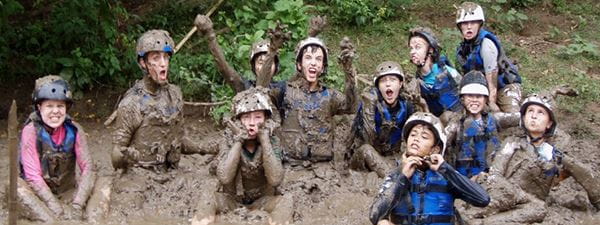
During the imposition of martial law in Thailand, ESF cancelled all school trips to the area based on International SOS’ alerts and advice. Meanwhile, precise situational analysis following the typhoon that struck the Philippines in November 2013 enabled ESF to push on with a vital community service expedition: “We learned from International SOS that the hotel our students were due to stay in was in the lee of a mountain; it was on safe ground and the local hospital was undamaged. This reassured us that it was safe to proceed. Our students performed five days of really valuable community service and had a great time, helping to restore vegetation as part of a local environmental project. In the days before International SOS the trip would have been cancelled; now, using their accurate information and expert guidance, combined with teachers’ common sense, we can manage the risks safely and intelligently. In this way, parents and school leaders can rest assured we are showing due diligence and discharging our primary Duty of Care – which is to keep our students safe and well as we provide a unique and valuable educational experience that they will remember for the rest of their lives.”



